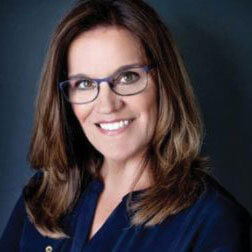The Risk of Normalizing Deviance
“Workload” has become a buzzword – and it’s no longer an adequate word to describe what we’re experiencing in nursing.
In every profession – and not just in health – people are experiencing worker shortages and longer hours.
Yes, nurses are working those extra hours too, but the problem is much bigger. The real issue we’re seeing is a normalization of critically low staffing.
It used to be that a nurse calling out a deviance in standard protocol – something that could increase the risk posed to a patient, client or resident – was a rarity but an important aspect of our role. It used to be that if we were on a unit that was identified as having a critically inadequate nurse-to-patient ratio, you’d have to close that unit; you’d have to transfer patients.
Now? We cross our fingers and carry on. And nurses are doing it every day and in every sector.
Under our post-pandemic “new normal,” deviance from safe staffing is now the norm. Unsafe nurse-to-patient ratios, extra-long shifts, and extra-long shifts without a meal are now commonplace. And that’s terrifying.
I think it’s safe to say that nurses get a lot of our self-esteem from doing the job we were taught to do and doing it well. And yet, our ability to spend time listening to a patient and provide the proper assessments, make proper care decisions, and act with compassion that studies show radically improves health outcomes have all gone out the window.
Not only do we work 12 hours often without a meal, but we also go home with the moral distress of having cared for double the patients we were supposed to and know that every one of those patients is facing added risk because we couldn’t give them the attention they needed. We’re exhausted from making endless ethical decisions about which patient we treat first, knowing we may not have time to get to who’s next. It’s the “Sophie’s Choice” of nursing.
Nurses are facing more than just the added hours. It’s this added emotional and ethical burden that’s really wearing us out and wearing us down.
None of us got into nursing because we thought it was an easy job. We’re in the business of caring for human beings, and there’s nothing simple about that. But I know that none of us ever expect to enter a profession that doesn’t allow us to care for people safely or holistically.
There are recognized ratios and standards that outline the minimum requirements to treat patients safely. And we’re being forced to deviate from those best practices day-after- day-after-day-after-day.
So what do we do about it?
With this new government mandate, we have to change the conversation. We have to stop talking about workloads and start talking about this normalization of deviance from safe patient assignments. We are normalizing reduced patient safety across the province and all aspects of care. Patients, clients, residents – and their families – need to be clear about this. Because it’s a terrifying thought.
There is a shortage of RPNs in every sector, including hospitals. RPNs are leaving the profession because they can’t stand by and watch patient safety put at risk. It’s not that they can’t handle a few extra hours; they can’t continue to make this sacrifice to their health and mental well-being and not even have a wage that reflects the current cost of living.
And for those sticking with it – either because we have to or because we care about this job too much – we need to keep raising the alarm bells so that deviance from safe staffing doesn’t remain the new normal in this new government mandate. Nurses are naturally optimistic, but we can’t keep hoping for the best.

Dianne Martin
CEO, WeRPN
